
 Flash News
Flash News
Accident at "Shkalla e Tujanit", truck overturns in the middle of the road, driver injured
Vlora by-pass, work delays and cost increases
Milan are expected to give up on the transfer of Granit Xhaka
Inceneratori jashtë funksionit, përfshihet nga flakët fusha e mbetjeve në Elbasan
Accident on the Lezhë-Shëngjin axis, one injured
Why I represent the Egyptian community and the Roma community on the PD-AshM candidate list and Rama's facade for minorities
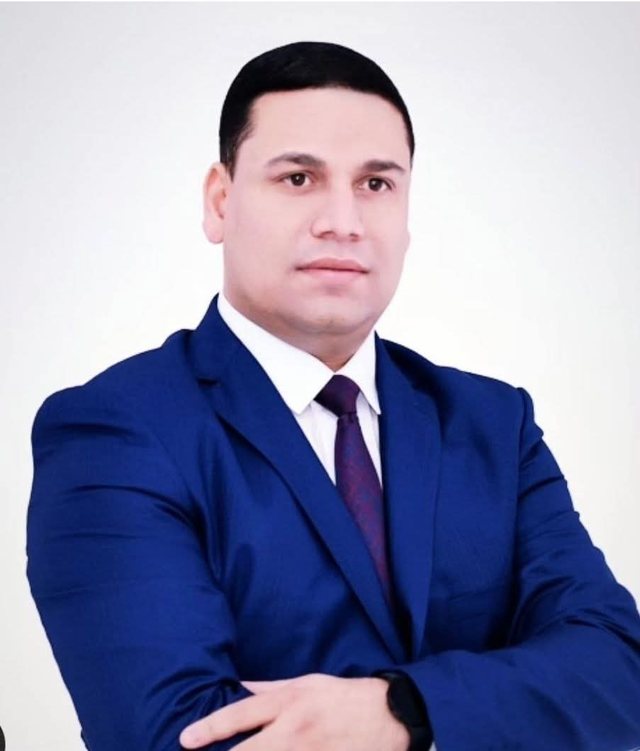
By Rivelino Cuno
During all these years of Edi Rama's government, a facade of integration for the Roma and Egyptian communities has been carefully built.
But behind this facade lies the bitter truth: a policy based on international correspondence projects, on the next photo to receive funds, and on the false spectacle of public care, while the reality continues to be brutal and unchanged.
Schools remain a gateway for them, but often the learning cycles never end.
Employment is an illusion.
Housing is a luxury they don't recognize.
Health is a long road that often ends without help.
Social policies are centralized, bureaucratic, and disconnected from the reality of everyday life.
What has the Rama Government done about this?
Very little in essence, much in appearance.
A politics of rhetoric and not of transformation.
The Rama government has failed to understand that inclusion is not a word on paper, but a vital project.
It has failed to build sustainable bridges for the integration of these communities into the education system and the labor market.
It has failed to address the discriminatory structures that keep these communities in inherited poverty and turn them into a vote bank dependent on aid and local clientelism.
Policies for them are mainly simulations of European standards, which in practice are empty, partial and uncoordinated.
But what should we do?
First, we need to change paradigms. The Egyptian and Roma communities are not just “marginalized groups,” but citizens of the Republic of Albania, with the same rights, the same human dignity, and the same right to be an active part of public life.
1. Education as emancipation, not as a formality.
We must build personalized support programs in primary and 9-year schools, with tutors, mentors and direct social assistance for families who keep children out of school for economic reasons.
In every municipality where there are Roma or Egyptian communities, there should be quotas for assistant teachers from the community itself and the involvement of parents in school councils.
2. Employment through real vocational training and not through fake courses.
Training programs should be linked to specific sectors that require labor and be accompanied by subsidies for employers who hire members of these communities. A National Agency for the Employment of Egyptian and Roma Communities should be established, so that they are not lost in the endless lines of employment offices.
3. Housing as a right and not as a political bargain.
The majority of Roma and Egyptians live in inadequate conditions, without contracts, without legal right of residence. A special law is needed for the legalization and urbanization of the areas where these communities live, not to isolate them, but to include them. Municipal budgets should have a dedicated line for this issue and be managed with transparency and real representation of the community.
4. Health and social assistance, not as a charity but as a right.
A special structure is needed within every health center and every economic-social center in the municipality, which deals exclusively with the Roma and Egyptian communities, with intermediaries from the community itself. Guaranteed access to preventive services, support for mothers and children, assistance with documentation and health insurance.
5. Political and civic empowerment.
We must stop speaking on their behalf, and give them real spaces for political, civic and social representation. The creation of a National Council of Roma and Egyptian Communities with monitoring, advisory and decision-making powers in public policies is a necessity.
We cannot build a European Albania by leaving a part of Albanians outside its doors.
We cannot talk about development and dignity if we accept that thousands of people in this country are treated as invisible.
For this, we need to build a new vision of inclusion, one that does not see aid as the end, but as the beginning of independence.
A vision that does not only deal with projects and funds, but with the roots of social injustice, with the discriminatory mentality, with the structures of inequality that have kept them in this state for decades.
In the end, what the Rama government has failed to do is not simply implement projects, it is the lack of a real political will to treat the Roma and Egyptian communities as inseparable parts of the Albanian national body.
It has not failed just for them.
It has failed for all of us, because it has allowed such a huge social wound to continue without conscience, without will and without hope.
Change begins with knowing the truth. Change begins when no child is born with the designation “outside the system.”
And the Albania of tomorrow begins when there are no more forgotten communities, but only free and equal citizens.
Latest news








Golem and Qerret without water at the peak of the tourist season
2025-07-01 21:09:32

Euractiv: Italy-Albania migrant deal faces biggest legal challenge yet
2025-07-01 20:53:38
BIRN: Brataj and Fevziu victims of a 'deepfake' on Facebook
2025-07-01 20:44:00

Vlora by-pass, work delays and cost increases
2025-07-01 20:24:29



Milan are expected to give up on the transfer of Granit Xhaka
2025-07-01 19:41:25

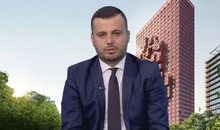
The silent but rapid fading of the towers' euphoria
2025-07-01 18:58:07
Donald Trump's daughter says 'goodbye' to June with photos from Vlora
2025-07-01 18:48:47

Tirana vote recount, Alimehmeti: CEC defended manipulation
2025-07-01 18:15:05

Left Flamurtari, striker signs with another Albanian club
2025-07-01 17:43:14
Accident on the Lezhë-Shëngjin axis, one injured
2025-07-01 17:19:35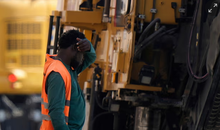
June temperature records, Italy limits outdoor work
2025-07-01 17:03:15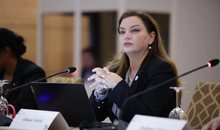

Meet Kozeta Miliku, named one of the top five scientists in Canada
2025-07-01 16:32:12
"Arsonist" arrested for repeatedly setting fires in Vlora (NAME)
2025-07-01 16:29:45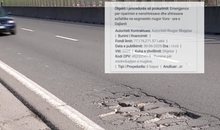
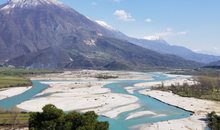
The ecological integrity of the Vjosa River risks remaining on paper
2025-07-01 16:09:40
Heat Headache/ Causes, Symptoms and Measures You Should Take
2025-07-01 16:01:13
UN: The world must learn to live with heat waves
2025-07-01 15:54:50

Three cars collide in Tirana, one of them catches fire
2025-07-01 15:38:16

Shehu: Whoever doesn't want Berisha, doesn't want the opposition 'war'!
2025-07-01 15:19:20
Berisha requests the OSCE Assembly: Help my nation vote freely
2025-07-01 15:11:46
Be careful with medications: Some of them can harm your sex life
2025-07-01 15:00:32

'Golden Bullet'/ Lawyers leave the courtroom, Altin Ndoc's trial postponed again
2025-07-01 14:44:52
EU changes leadership, Kosovo in a number of places
2025-07-01 14:40:01
Should we drink a lot of water? Experts are surprised: You risk hyponatremia
2025-07-01 14:30:20

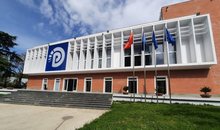

Lëpusha beyond Rama's postcards: A village that is being silently abandoned
2025-07-01 13:41:56
Scorching temperatures in France close the Eiffel Tower
2025-07-01 13:29:35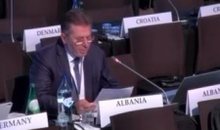
Media: China, Iran and North Korea, a threat to European security
2025-07-01 13:20:12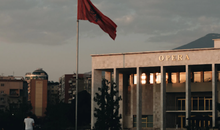
Albania drops in global index: Less calm, more insecure
2025-07-01 13:09:35
Road collapses, 5 villages in Martanesh risk being isolated
2025-07-01 13:03:04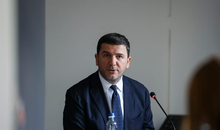

Këlliçi: Opposition action to be decided in September
2025-07-01 12:48:49
Four tips for coping with the heat wave
2025-07-01 12:38:53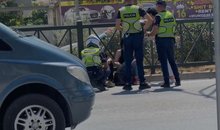
Car hits pedestrian on Transbalkan road
2025-07-01 12:27:09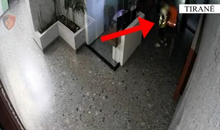
Authors of 9 robberies, Erjon Sopoti and Abdullah Zyberi arrested
2025-07-01 12:15:56

He abused his minor daughter, this is a 36-year-old man in custody in Fier
2025-07-01 11:50:34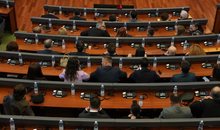
The constitution of the Kosovo Assembly fails for the 40th time
2025-07-01 11:40:08



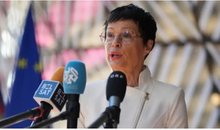
EU confirms support for the Western Balkans
2025-07-01 10:50:45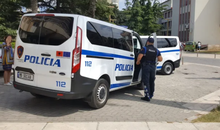
Serious in Fier! Father sexually abuses his minor daughter
2025-07-01 10:32:33
One year since the passing of the colossus of Albanian literature, Ismail Kadare
2025-07-01 10:25:26


They supplied the 'spaçators' with drugs, two young men are arrested in Tirana
2025-07-01 09:54:09
Europe is "scorching", how dangerous are high temperatures?
2025-07-01 09:48:56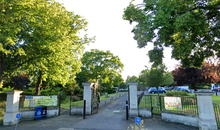


Nigel Farage in Albania: but why?
2025-07-01 09:13:12
Xama: The "Partizani" dossier is quite weak and without facts!
2025-07-01 09:04:47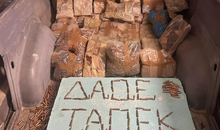

Foreign exchange, the rate at which foreign currencies are sold and bought
2025-07-01 08:35:39
Fabricators again warn of factory closures and job cuts
2025-07-01 08:21:30
Horoscope, what do the stars have in store for you today?
2025-07-01 08:08:59
Scorching hot, temperatures reaching 40°C
2025-07-01 07:57:12
Morning Post/ In 2 lines: What mattered yesterday in Albania
2025-07-01 07:42:59
Recount after May 11, Braho: I had no expectations for massive vote trafficking
2025-06-30 22:54:18

Second hearing on the protected areas law, Zhupa: Unconstitutional and dangerous
2025-06-30 22:18:46



Israel-Iran conflict, Bushati: Albanians should be concerned
2025-06-30 21:32:42

Fuga: Journalism in Albania today in severe crisis
2025-06-30 21:07:11
"There is no room for panic"/ Moore: Serbia does not dare to attack Kosovo!
2025-06-30 20:49:53

Temperatures above 40 degrees, France closes nuclear plants and schools
2025-06-30 20:28:42
Lavrov: NATO is risking self-destruction with new military budget
2025-06-30 20:13:54
Turkey against the "Bektashi state" in Albania: Give up this idea!
2025-06-30 20:03:24

Accused of sexual abuse, producer Diddy awaits court decision
2025-06-30 19:40:44


